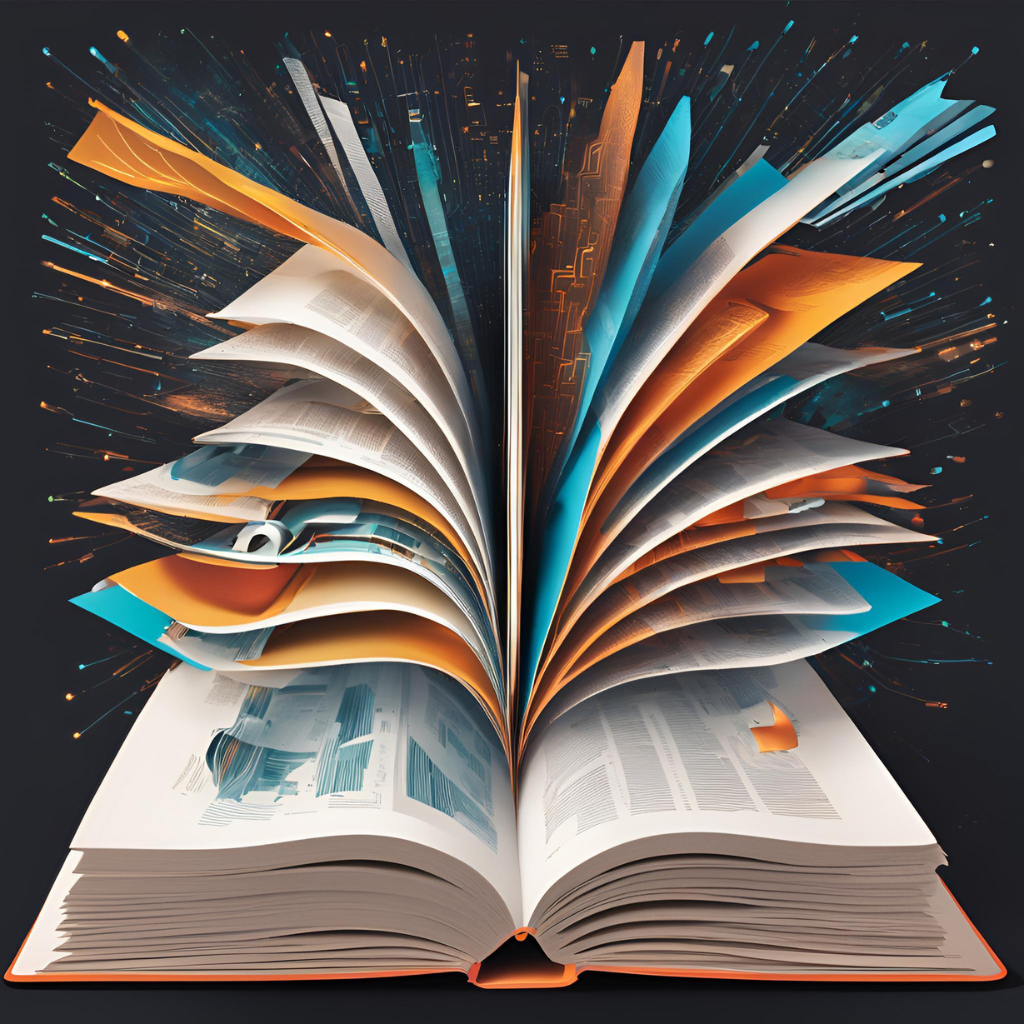
How to Use AI to Write a Book: A Comprehensive Guide for Authors & Publishers
- AI Writing Fundamentals

The world of writing is undergoing a dramatic transformation, thanks to the rise of powerful AI writing tools. These innovative tools, leveraging cutting-edge technologies like machine learning and natural language processing (NLP), are empowering authors and publishers to write more efficiently, creatively, and effectively than ever before. This guide will explore how to use AI to write a book, providing a practical roadmap for harnessing these tools to enhance every stage of the writing journey.
Understanding AI Content Creation
Before diving into the specifics, it’s crucial to understand the core concepts behind AI content creation. This field utilizes computer systems designed to mimic human intelligence, enabling them to learn, reason, and even solve problems. In the context of writing, this translates into AI writing tools that can:
- Generate ideas for plots, characters, and outlines.
- Offer suggestions for editing and improving sentence structure.
- Assist in writing entire sections of a book.
These capabilities are powered by complex algorithms and vast amounts of data, allowing AI to analyze language patterns, predict word sequences, and generate coherent and engaging text. Some of the key technologies driving these advancements include:
- Natural Language Generation (NLG): This technology focuses on enabling computers to produce human-like text from data.
- Machine Learning (ML): AI systems learn from data, identifying patterns and improving their performance over time.
- Large Language Models (LLMs): These models, like ChatGPT and GPT-4, have been trained on massive datasets, enabling them to understand and generate human language with impressive accuracy.
These technologies are revolutionizing the writing landscape, changing how authors approach research, planning, drafting, and even promoting their books. However, it’s essential to remember that AI serves as a powerful augmentative tool, enhancing human efforts rather than replacing them.
Ethical Considerations: Navigating the AI Writing Landscape
As with any transformative technology, the use of AI in writing raises important ethical considerations that authors and publishers must carefully navigate.
Plagiarism and Originality
One of the most significant concerns is the potential for plagiarism. AI models, trained on vast amounts of existing text, may inadvertently generate content that closely resembles copyrighted material. To mitigate this risk:
- Utilize techniques for passing AI detection to ensure that your content is original and authentic.
- Thoroughly review and edit any AI-generated text to confirm its uniqueness and avoid unintended plagiarism.
- Remember that human oversight is crucial for guaranteeing the integrity and originality of your work.
Copyright and Ownership
The legal landscape surrounding AI-generated content is still evolving, raising questions about copyright ownership. It’s crucial to understand:
- Potential legal implications: Using copyrighted material as prompts or relying heavily on AI-generated text without proper attribution could lead to legal issues.
- Ongoing legal discussions: Copyright law is grappling with how to classify and protect AI-generated works, and these discussions will likely continue as the technology advances.
Bias in AI Algorithms
AI models can inherit biases from the data they are trained on, potentially leading to the generation of text that perpetuates harmful stereotypes or excludes certain groups.
- Be aware of potential bias: Recognize that AI-generated content might reflect societal biases present in the training data.
- Strategies for mitigation: Actively review and edit AI output to identify and remove any biased language, ensuring your work is inclusive and ethical.
AI Hallucinations
AI models, while impressive, can sometimes produce inaccurate or nonsensical information, a phenomenon known as “AI hallucinations.”
- Fact-check diligently: Always verify the accuracy of AI-generated information, especially for non-fiction works, using reputable sources to corroborate facts and data.
- Critical thinking: Don’t take AI output as gospel truth; apply critical thinking and skepticism when evaluating AI-generated content.
AI-Powered Enhancement: Every Stage of the Writing Process
Let’s explore how AI can be seamlessly integrated into each step of the book-writing process, empowering authors to work smarter and maximize their creative potential.
1. Research Your Niche
Thorough research is the foundation of any successful book, and AI can streamline this process significantly:
- Market Analysis: Utilize AI tools like ChatGPT to analyze trends, identify popular topics, and research relevant keywords to gain insights into market demand.
- Understanding Your Audience: Employ ChatGPT to create detailed customer profiles, helping you understand your target audience’s needs, interests, and pain points.
- Keyword Research: Leverage tools like Semrush and WriterZen to identify the most effective keywords for your book’s genre and topic, enhancing its visibility in online searches.
- Trend Analysis: Use Google Trends to understand the popularity of keywords and topics over time, helping you gauge reader interest and identify emerging trends.
2. Create the Plot Structure (for Fiction)
AI can be a valuable partner in crafting compelling narratives and developing memorable characters:
- Plot and Outline Generation: AI tools like ChatGPT and Sudowrite can generate plot ideas, create outlines, and assist in developing compelling narratives, helping you overcome writer’s block and explore new creative possibilities.
- Character Development: Leverage AI to brainstorm character names, backstories, motivations, and relationships, adding depth and complexity to your story.
- Dialogue Generation: Experiment with AI to create natural-sounding dialogue that reflects your characters’ personalities and advances the plot.
- World-Building: Use AI to generate descriptions of settings, cultures, and historical events, enriching the world of your story and making it more immersive for readers.
3. Choose a Captivating Title
A compelling title is essential for grabbing readers’ attention and making your book stand out in a crowded marketplace. AI can help you craft the perfect title that encapsulates your book’s essence:
- Title Generation: Use tools like ChatGPT, Gemini, or Bing Copilot to generate various title ideas based on your book’s genre, theme, and target audience.
- A/B Testing: Consider using AI-powered A/B testing platforms to test different title options and gather data on which ones resonate most with readers.
4. Start Writing with AI
Once you have a solid foundation, AI can help you move from outline to first draft more efficiently:
- AI Novel Writing Software: Tools like Sudowrite and Jasper are specifically designed for fiction writing, offering assistance in generating drafts, improving sentence structure, and experimenting with different writing styles.
- Crafting Effective Prompts: The quality of AI output depends heavily on the clarity and detail of your prompts. Provide specific instructions, context, and examples to guide the AI and ensure it generates text aligned with your vision.
- Staying on Topic: It’s crucial to keep your prompts and the subsequent AI-generated content focused on the main subject of your book.
- AI Note Taker: Utilize AI note-taking tools to capture ideas, research findings, and inspiration as you work, keeping everything organized and easily accessible.
5. Edit and Refine with AI Assistance
AI can be a valuable ally in the editing and refining process, helping you polish your manuscript and enhance its clarity and flow.
- AI Editors: Tools like Grammarly are excellent for catching grammar and spelling errors, identifying plagiarism, and even suggesting improvements for sentence structure and clarity.
- Human Editing: While AI editors can be incredibly helpful, human review and editing are still essential. A human editor can provide nuanced feedback on style, tone, and overall coherence, ensuring that your book reads smoothly and engages readers on an emotional level.
6. Design a Visually Appealing Cover and Interior
A captivating cover and a well-designed interior can significantly impact a book’s appeal. AI is revolutionizing the design process, making professional-quality design more accessible than ever before:
- AI Image Generators: Tools like Midjourney are capable of creating stunning cover art based on text descriptions.
Share:

